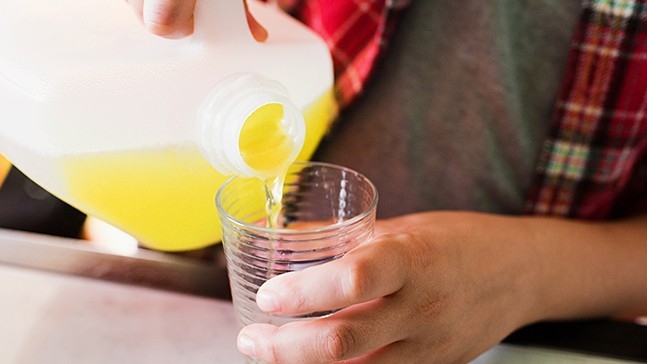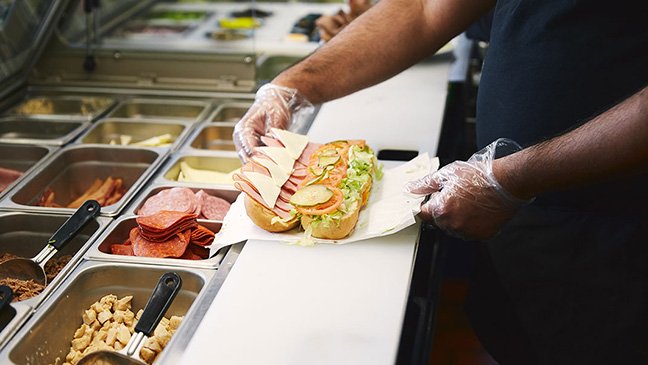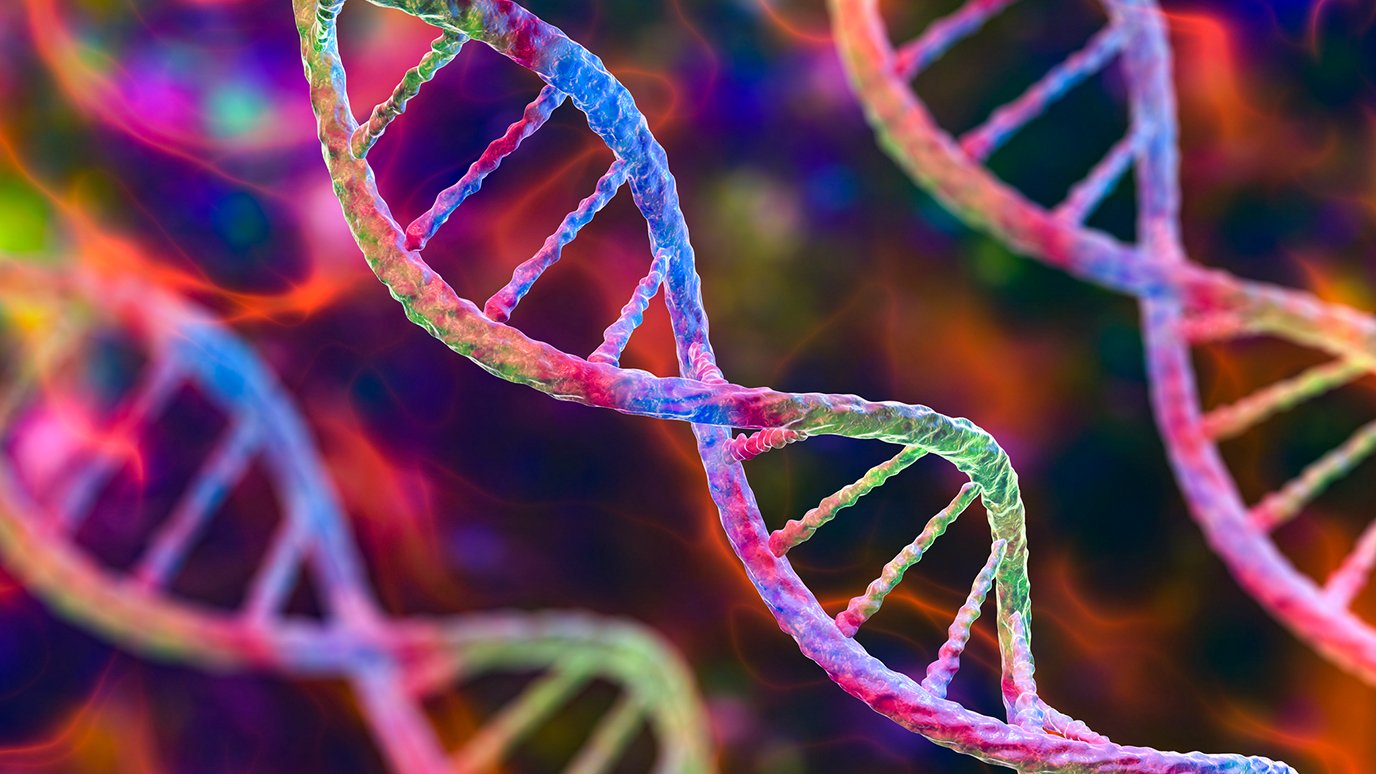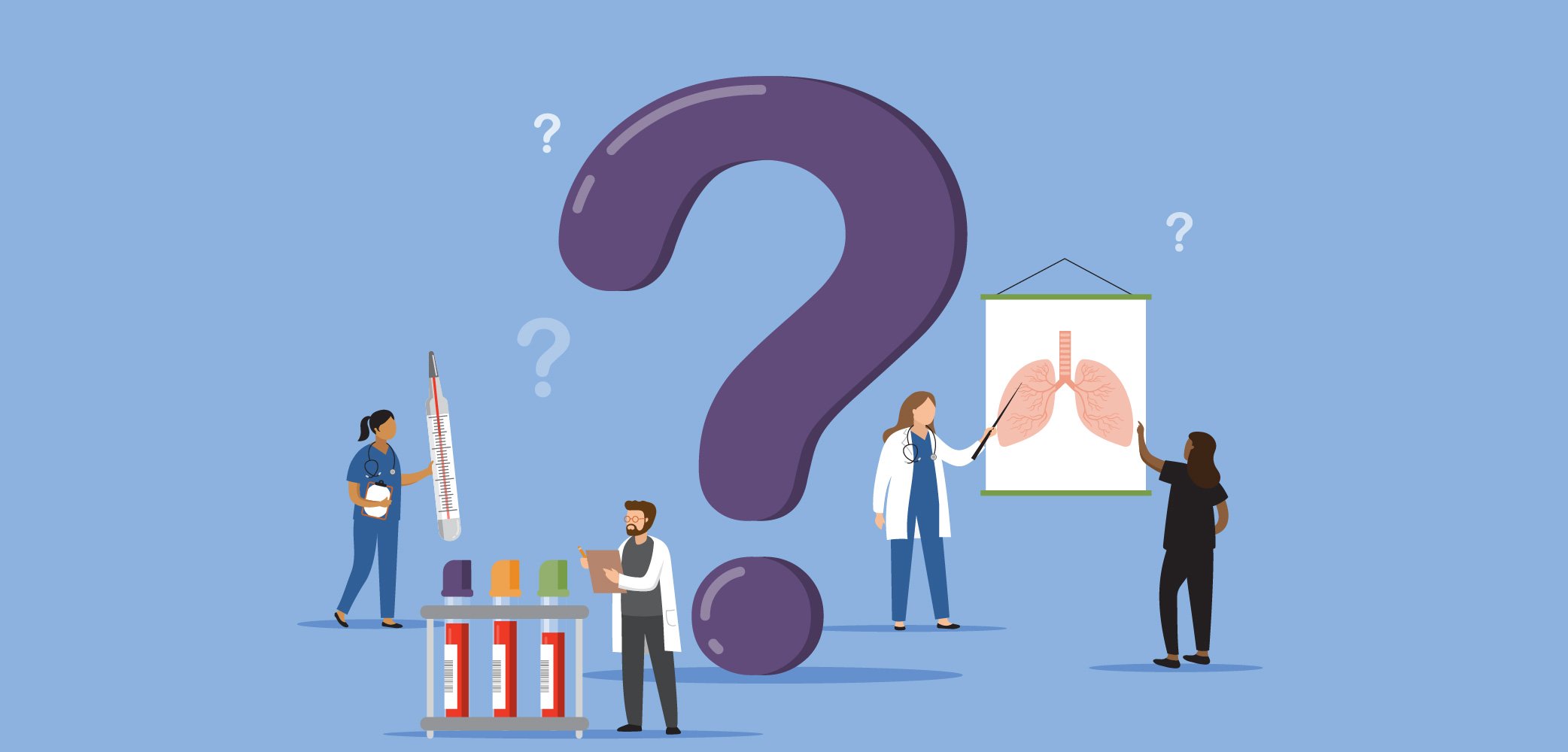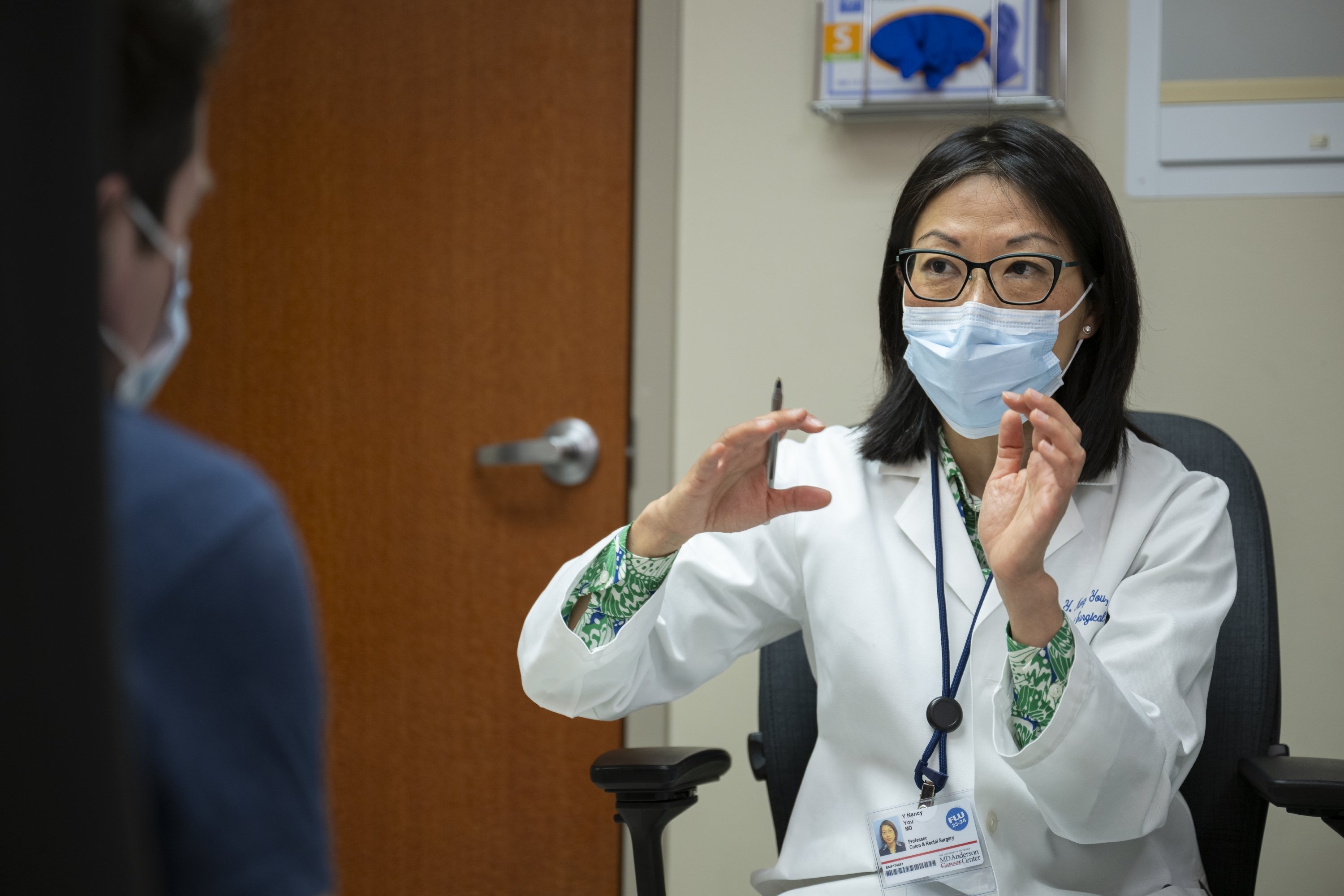- Diseases
- Acoustic Neuroma (16)
- Adrenal Gland Tumor (24)
- Anal Cancer (70)
- Anemia (2)
- Appendix Cancer (18)
- Bile Duct Cancer (26)
- Bladder Cancer (74)
- Brain Metastases (28)
- Brain Tumor (234)
- Breast Cancer (726)
- Breast Implant-Associated Anaplastic Large Cell Lymphoma (2)
- Cancer of Unknown Primary (4)
- Carcinoid Tumor (8)
- Cervical Cancer (164)
- Colon Cancer (168)
- Colorectal Cancer (118)
- Endocrine Tumor (4)
- Esophageal Cancer (44)
- Eye Cancer (36)
- Fallopian Tube Cancer (8)
- Germ Cell Tumor (4)
- Gestational Trophoblastic Disease (2)
- Head and Neck Cancer (14)
- Kidney Cancer (130)
- Leukemia (342)
- Liver Cancer (50)
- Lung Cancer (286)
- Lymphoma (278)
- Mesothelioma (14)
- Metastasis (30)
- Multiple Myeloma (100)
- Myelodysplastic Syndrome (60)
- Myeloproliferative Neoplasm (6)
- Neuroendocrine Tumors (16)
- Oral Cancer (102)
- Ovarian Cancer (178)
- Pancreatic Cancer (160)
- Parathyroid Disease (2)
- Penile Cancer (14)
- Pituitary Tumor (6)
- Prostate Cancer (150)
- Rectal Cancer (58)
- Renal Medullary Carcinoma (6)
- Salivary Gland Cancer (14)
- Sarcoma (238)
- Skin Cancer (300)
- Skull Base Tumors (56)
- Spinal Tumor (12)
- Stomach Cancer (66)
- Testicular Cancer (28)
- Throat Cancer (92)
- Thymoma (6)
- Thyroid Cancer (100)
- Tonsil Cancer (30)
- Uterine Cancer (86)
- Vaginal Cancer (18)
- Vulvar Cancer (22)
- Cancer Topic
- Adolescent and Young Adult Cancer Issues (22)
- Advance Care Planning (12)
- Biostatistics (2)
- Blood Donation (18)
- Bone Health (8)
- COVID-19 (360)
- Cancer Recurrence (120)
- Childhood Cancer Issues (120)
- Clinical Trials (628)
- Complementary Integrative Medicine (22)
- Cytogenetics (2)
- DNA Methylation (4)
- Diagnosis (238)
- Epigenetics (6)
- Fertility (62)
- Follow-up Guidelines (2)
- Health Disparities (14)
- Hereditary Cancer Syndromes (128)
- Immunology (18)
- Li-Fraumeni Syndrome (8)
- Mental Health (122)
- Molecular Diagnostics (8)
- Pain Management (62)
- Palliative Care (8)
- Pathology (10)
- Physical Therapy (18)
- Pregnancy (18)
- Prevention (936)
- Research (390)
- Second Opinion (78)
- Sexuality (16)
- Side Effects (616)
- Sleep Disorders (10)
- Stem Cell Transplantation Cellular Therapy (216)
- Support (408)
- Survivorship (328)
- Symptoms (182)
- Treatment (1788)
Electrolytes 101: What to know
4 minute read | Published August 13, 2024
Medically Reviewed | Last reviewed by an MD Anderson Cancer Center medical professional on August 13, 2024
Staying hydrated is a health topic that never seems to get less popular – no doubt because of how many of our bodies’ functions rely on water! But what if there was a way to boost water’s health benefits?
Electrolyte drinks and powders seem like a promising way to do just that. Maybe you’ve even seen athletes and wellness-conscious individuals drinking electrolytes to prevent dehydration and refuel during and after intense workouts.
But should we all use electrolyte drinks? Ahead, wellness dietitian Lindsey Wohlford discusses who could benefit from drinking electrolytes and how to add them into your hydration routine.
Electrolytes: What they are and how they work
“Electrolytes are various essential minerals found in the blood, sweat and urine,” Wohlford says.
The National Library of Medicine writes that some of the most common electrolytes in the body include bicarbonate, calcium, chloride, magnesium, phosphate, potassium and sodium.
Electrolyte products, often sold as powders or sports drinks, are designed to help the body replenish its electrolytes. These drinks and powders generally contain carbohydrates and a small amount of electrolyte such as sodium, Wohlford says.
“When they are dissolved in fluid, they gain an electrical charge and influence many metabolic processes in the body, such as nerve function, muscle contraction, blood pressure, pH balance, hydration status and others,” she says.
But it’s not always necessary to consume these products. Wohlford says the body needs a specific concentration of electrolytes to function properly: too few electrolytes can be dangerous, but so can too many.
“Most people can get enough electrolytes through a balanced diet and plain water,” she says. “It is always best to obtain nutrients from food; electrolytes are no exception.”
MD Anderson dietitians recommend eating healthy foods. For meals, try to fill two-thirds of your plate with whole grains, vegetables, fruits, beans, nuts and seeds. The remaining one-third can be lean animal protein or plant-based protein.
While there is not a single fluid recommendation that is right for everyone, our experts have noted that a good goal is 13 cups a day for men and 9 cups a day for women.
“Consuming a balanced diet filled with many plant-based foods is an easy way to ensure you get enough electrolytes,” Wohlford says.
When to drink electrolyte water
There are times you may need to supplement the electrolytes you get from food, Wohlford says. Examples of these situations include:
- After illnesses with vomiting and diarrhea
- Before, during and after prolonged exercise or heavy sweating
- When in extreme heat for a long time
"Electrolytes can help with rehydration after illness, prevent heat stroke or illness, and improve athletic performance,” she says.
Unless your doctor says otherwise, you shouldn’t replace your entire daily water intake with electrolyte products, Wohlford says.
Not sure whether you need electrolytes? Your doctor can help determine if they are helpful in your specific situation.
“Avoid consuming electrolyte drinks if you don’t really need them or they haven’t been recommended by your doctor,” Wohlford says.
How to choose an electrolyte product
If you’ve decided electrolyte products are right for you, there are many options to choose from. So, what should you look for?
Avoid artificial ingredients and sweeteners
“Many electrolyte beverages contain large amounts of added sugar, artificial sweeteners, flavors and colors,” Wohlford says.
She suggests checking a product’s nutrition label and opting for electrolyte sources that use natural sugars rather than artificial sweeteners and ingredients.
Consider vitamin levels
Electrolyte products may also contain added vitamins, minerals and performance enhancements, Wohlford says.
While those ingredients may sound like added bonuses, it is possible to have too much of a good thing. Wohlford suggests avoiding options that contain more than 100% of the Daily Value for sodium and other vitamins and minerals.
“Taking very high levels of certain electrolytes or consuming extra electrolytes when you do not need them can contribute to potentially harmful health concerns such as elevated blood pressure, gastrointestinal issues, irritability, confusion, muscle cramps, weakness and headaches,” she says.

Make a homemade option
Overwhelmed with options at the grocery store? Wohlford shares how to whip up a liter of electrolyte water at home.
Combine the following ingredients and stir. Chill before serving.
- 2 cups cold water
- 1 cup coconut water
- 1 cup fruit juice of choice
- 1/8 teaspoon salt
What those in cancer treatment should know about electrolyte water
Cancer treatment and its side effects can cause dehydration and electrolyte imbalance, Wohlford says. So, does this mean it is OK for cancer patients to drink electrolyte water? The answer, like so many other cancer-related topics, depends on the individual.
In general, Wohlford says cancer patients can follow the general guidance that it is best to get nutrients from your diet. For example, fruits, vegetables and plant-based foods are good sources of electrolytes.
If you think you might benefit from electrolyte supplements, Wohlford says to check with your care team first.
“Always check with your doctor and dietitian before supplementing with additional electrolyte waters or powders. They will monitor your lab work to ensure you have a proper balance and provide individualized guidance for supplementation,” she says.
Request an appointment at MD Anderson online or call 1-877-632-6789.

Most people can sufficiently meet their electrolyte needs through a balanced diet and plain water.
Lindsey Wohlford
Wellness dietitian

